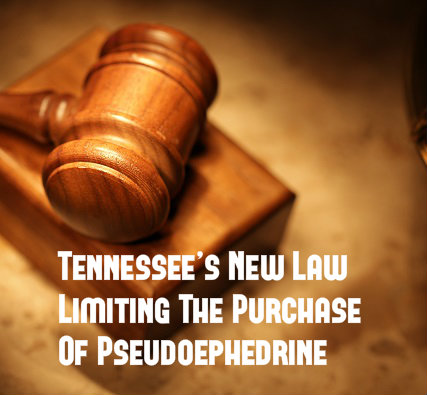Tennessee’s Anti-Meth Law Takes Hold – Limiting Purchase Of Pseudoephedrine
Much of the current drug news from around the country focuses on heroin and narcotic painkillers. Methamphetamine is sometimes thought of as yesterday’s news, but in many areas it is still a raging problem. In 2013, news outlets reported that Tennessee had become the leading state in the U.S. for meth use. Now a new law has gone into effect that legislators and law enforcement officials hope will crack down on the epidemic in Tennessee that is costing taxpayers $1 billion a year.
The Meth Problem
It was more than a decade ago that meth labs started springing up around the country, but particularly in rural areas. Methamphetamine is a controlled substance that can be prescribed by a doctor, but rarely is. The side effects and the potential for abuse are so great that it is a last-resort medication for some medical conditions, including ADHD and obesity.
Effects Of Meth
Meth is susceptible to abuse because it is a stimulant and gives the user energy as well as a euphoric feeling. On the downside, meth can cause:
 high blood pressure
high blood pressure- an elevated body temperature
- dry mouth
- jaw-clenching
- memory loss
- aggression
- paranoia
- anxiety
- insomnia
- brain damage
- organ damage
- severe dental problems
- violent behavior
It is also highly addictive and with prolonged and continued use, the negative side effects increase.
Meth has become such a huge problem because it is relatively easy to make. With just a few ingredients, including an over-the-counter cough medicine ingredient, anyone can make it in a home lab. These labs are abundant in Tennessee and the drug has been having disastrous effects on individuals and families in the state.
How Tennessee’s New Law Is Limiting The Purchase Of Pseudoephedrine
While other states have enacted and enforced strict laws regarding the purchase of cough medicine that have helped cut down on meth manufacturing and use, Tennessee has fallen behind. A bill passed in April can now change the course of Tennessee’s meth trajectory. The new law restricts the purchase of medicines containing pseudoephedrine, the cough medicine ingredient for making meth, to 48 tablets per month and 240 per year. The cap previously sat at 75 tablets per month. Some lawmakers wanted to slash that maximum even further, but a compromise was set at 48.
It may seem like a no-brainer to restrict pseudoephedrine, but there are plenty of law-abiding Tennesseans who depend on the medication for allergy relief. Some opponents of the bill argued that it was unfair to restrict access to the medication and stated that most of the meth used in Tennessee comes from other states. Still, the majority of lawmakers agreed that slashing the maximum allowance would curb meth use in the state.
As part of the restriction on buying pseudoephedrine, consumers’ purchases of the medication will be tracked. Those with a real medical need for more pseudoephedrine will be able to go over the limit with a doctor’s prescription. The need for more restrictions on meth-making ingredients is great and many feel that this new law meets that need. Others are skeptical, but only time will tell if Tennesseans are really ready to kick the meth habit.
Read Other News In Addiction And Addiction Rehab



